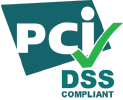As a credentialing industry professional, you know better than most that “knowledge is power.” After all, what you know makes you the professional you are. But isn’t it possible – even likely – that insights or knowledge that you don’t have now could lift you – and your credential program – to the next level? We humbly but enthusiastically suggest that you visit Kryterion’s Resources Hub.
With Kryterion’s on-demand Resources Hub, you can tap into industry knowledge from a source you can trust:
- At your own pace
- Via accessible, in-depth summaries
- Online and fee-free and without any obligation
These guides offer balanced, detailed summaries and real insights. They’re hyperbole-free and carefully vetted by our own Psychometrics Services team of professionals.
Here’s what you will find.
Top Mistakes New Certification Programs Make and How to Avoid Them
Learn about the seven most common mistakes our own Psychometric Services team has encountered and addressed when supporting clients. 2660 words.

Excerpt from Mistake #1: Not Conducting Market Research”
There is more to market research than assessing target market interests and requirements. The long-term viability of a certification program depends on developing a complete picture of the competitive landscape in which it will operate. As part of that process, new program managers must also achieve an honest understanding of their own competitive advantage(s) or lack thereof.
Micro-Credentials: A Quick Guide for You
Compare the pros and cons of micro-credentials against those of traditional credentials. Most other articles we have seen on micro-credentials overlook the challenges micro-credentials can generate for a credentialing program. This one doesn’t. 3000 words.

Excerpt from Traditional Credentials Vs. Micro-Credentials:
Please take note. The primary difference between a traditional credential and a micro-credential has nothing to do with the quality of the evaluation.
Whether mastery of a specific area of expertise or skill set is confirmed by a traditional credential or a micro-credential, the minimum required proficiency should be consistent.
The major difference between these credential families is in the breadth of skills or knowledge evaluated and the specificity of the reported results.”
A Psychometrician’s Guide To Smart Test Development

Explore a thoughtful, step-by-step review of the standards, requirements and processes that must be managed to achieve success in the credentialing marketplace. This guide is for individuals who are serious about developing a new credential program. 12,600 words.
Excerpt from The Minimally Qualified Candidate
Of particular importance is defining the expectations for a minimally qualified candidate (MQC) for the credential. The MQC can be thought of as the candidate who possesses the minimum level of knowledge and skills required to obtain the credential. …
Creating an agreed-upon definition of minimal competence at the very beginning of the test development process is essential. Otherwise, it is very likely that your examination will either measure the wrong types of knowledge and skills, be too difficult or easy given the purpose of the exam, result in passing or failing the wrong candidates, or all of the above.
By the way

We welcome inquiries about our programs and services. To schedule a conversation with a Kryterion Business Professional, complete and submit this short contact form.
Our experts specialize in the delivery of clear and helpful insights. You might find it empowering!








